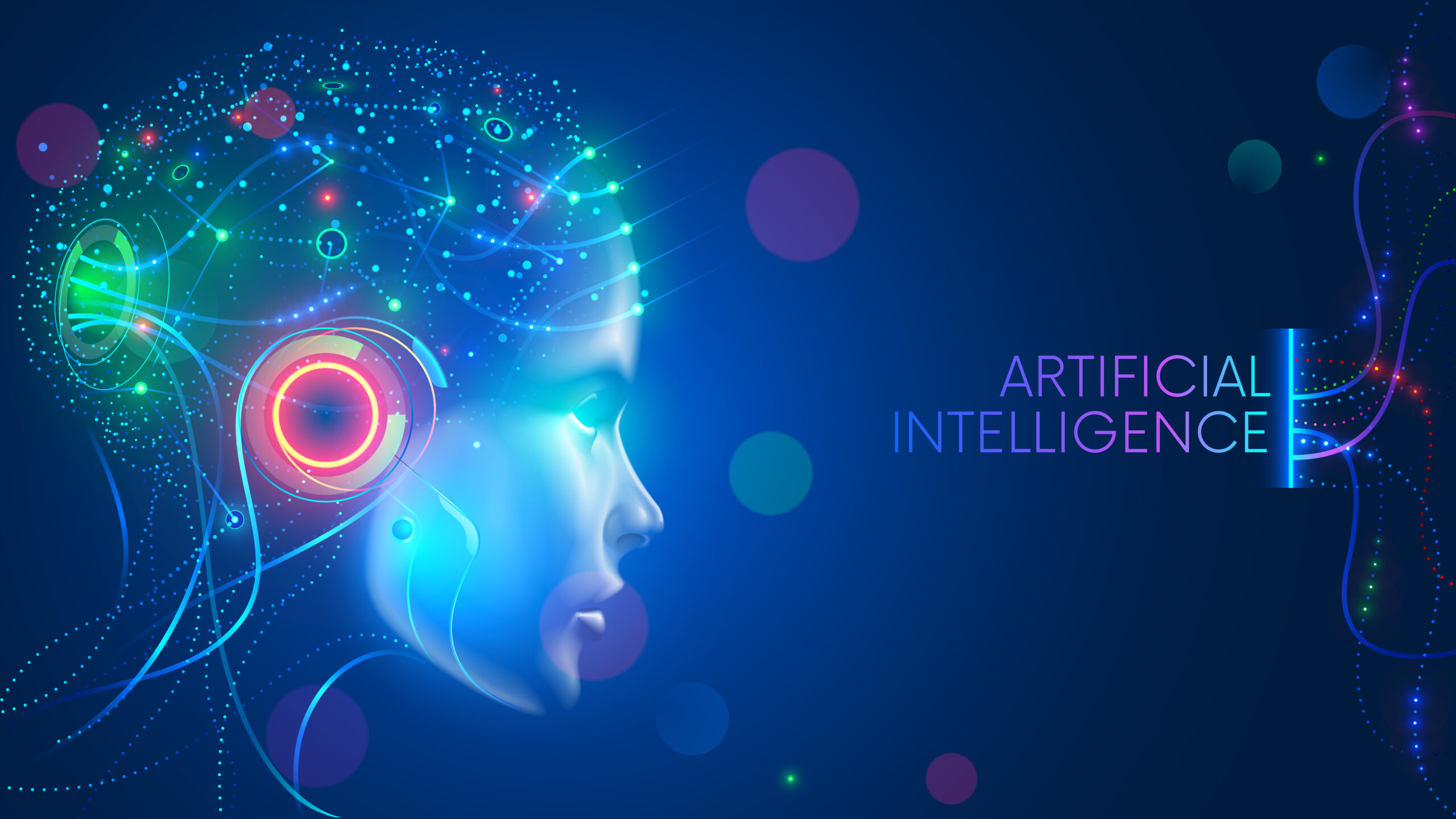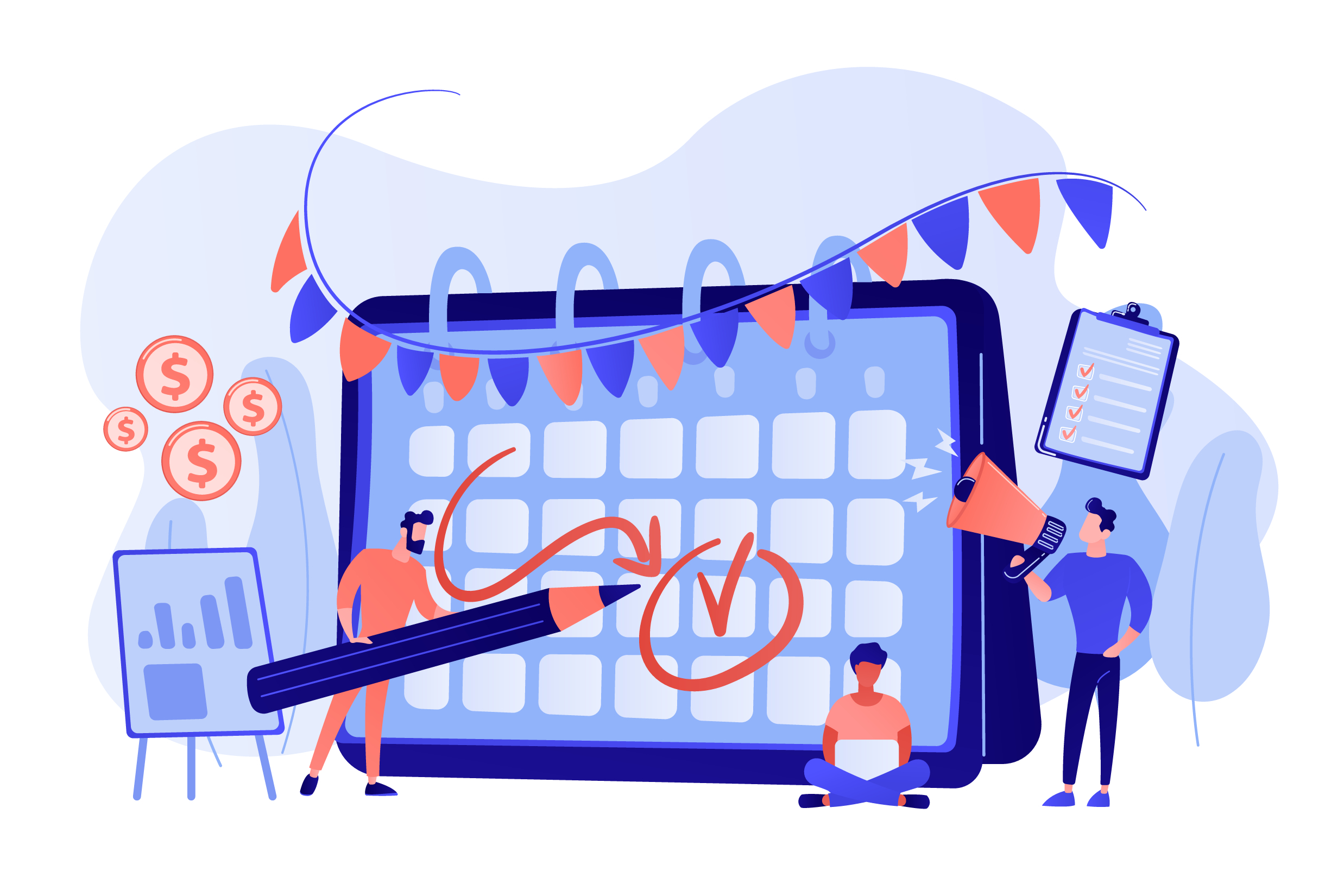Is AI Hard To Learn? A Guide To Getting Started in 2023

In this article
Whether it’s recommending shows on Netflix or used in the healthcare sector, artificial intelligence is slowly seeping into all avenues of our lives. In fact, the global AI market is estimated to value $190.61 billion in 2025. At the moment, the expected restriction in the industry is a lack of experienced and trained staff.
Is AI hard to learn? Is that why there’s a lack of professional staff in the field? That’s true to some extent. But that doesn’t mean getting into AI without prior education or knowledge is impossible.
In this guide, you’ll learn how to get into AI and machine learning, along with what makes the profession challenging to get into.
What Is Artificial Intelligence?
Artificial intelligence is the process of programming a computer to make decisions for itself. This could be anything from recognizing objects in pictures to responding to customer queries on behalf of a company.
Machine learning is a subset of AI that teaches computers how to learn from data. This is done by feeding the computer many examples and letting it figure out patterns by itself.
What Makes AI Hard To Learn?
Is AI hard to learn? Yes, it can be, and it’s so hard that 93% of automation technologists themselves don’t feel sufficiently prepared for upcoming challenges in the world of smart machine technologies.
Companies face many challenges when implementing artificial intelligence. Among them, the top challenge is lack of staff skills, which is an issue faced by 56% of the companies. It’s understandable why most enterprises feel this way, considering AI is inherently complex.
Some things that make it hard to learn include:
- Extensive Programming: AI requires intensive programming. You need to learn coding to program computers to make decisions for themselves.
- Data Proficiency: Machines need a lot of data to learn from to become proficient at a task. This can be difficult to obtain, especially if you’re starting out.
- Complexity: AI is complex and involves understanding a variety of fields such as computer science, statistics, calculus, and more.
- Lack of Adequate Tools: Most existing tools and processes in artificial intelligence were developed for traditional software. People entering the field often have to spend time and resources developing new tools, which can be difficult and time-consuming.
However, those statistics don’t mean that there aren’t any entry-level jobs in the field of AI and ML. There are many such job openings out there you can prepare for.
How Long Does It Take To Learn AI?

Although learning artificial intelligence is almost a never-ending process, it takes about five to six months to understand foundational concepts, such as data science, Artificial Neural Networks, TensorFlow frameworks, and NLP applications.
It may take longer to learn advanced concepts, such as deep learning, reinforcement learning, and unsupervised machine learning. Since most people learn artificial intelligence through a certification or course, the duration of the program also determines how long you’ll take to learn the skill.
Get To Know Other Data Science Students
Sunil Ayyappan
Senior Technical Program Manager (AI) at LinkedIn
Jonathan Orr
Data Scientist at Carlisle & Company
Bryan Dickinson
Senior Marketing Analyst at REI
How To Get Started With AI
Getting started with AI can be daunting since knowing where to begin is hard. Follow the tips below to start honing your AI skills.
Build Your Foundation
Regardless of the AI specialty you’re interested in, it’s important to have a solid foundation in the field as a whole. Some basic skills to learn include:
- Python: This is the most common language used in AI. It’s useful for simple tasks, so you don’t have to upgrade all your code when moving to more advanced applications.
- Machine Learning Basics: You should also learn the basics of Machine Learning to start taking steps towards understanding AI algorithms.
- Statistics & Probability Theory: A basic understanding of statistics and probability theory will come in handy when dealing with large data sets.
- Calculus: Calculus is used in various AI applications, so it’s important to understand the basics. You should also familiarize yourself with linear algebra.
Other skills to learn are:
- Natural language processing.
- Solving a real-world problem.
- Debugging.
- Working with new data or data structures.
Additionally, you should understand three basic cognitive skills used in AI. These are
- Learning: Focuses on data acquisition and rule creation for turning data into an actionable format.
- Reasoning: Aids in decision-making and logical inferences.
- Self-correction: Handles information correction and changes to improve results.
Once you have your foundation in place, start working on a simple AI project. This will give you hands-on experience and help you learn new concepts.
Utilize Free Resources
If you’re new to artificial intelligence, you don’t necessarily have to spend hundreds of dollars upfront. Instead, you can develop useful skills through free resources, such as YouTube videos and ebooks.
You can also use online tutorials and GitHub to learn programming languages that come in handy in AI careers. Google also has a host of free resources for learning artificial intelligence, and these can be helpful to beginners and seasoned machine learning practitioners alike. Once you think you’re ready for the next step, go ahead and take a paid course to get advanced knowledge of artificial intelligence.
Take a Course

Take a machine learning certification or course to gain a stronger foundation in AI. This will give you the skills you need for more advanced projects and accelerate your learning process.
Many institutes offer courses in artificial intelligence, both online and offline. Make sure the course you pick covers all the bases, offers mentorship availability, and teaches you how to deal with real-world projects.
Springboard’s Machine Learning Engineering Career Track course teaches you how to build and deploy machine learning algorithms. Plus, you’ll build a professional portfolio throughout the program, which will further help you bag a job.
Another benefit of taking an online course is that you can meet like-minded people who’re on the same path as you. Most courses also have community forums or collaboration opportunities, allowing you to network with other people who’re also learning artificial intelligence.
Ask for Help
As we’ve already established, AI is hard. So you shouldn’t hesitate to ask for help when you need it. There are several online communities to tap into when you have questions about AI, such as Facebook groups and Reddit forums.
You can also ask for help offline via meetups in your local community. If there’s no meetup available in your area yet, you can always start one yourself. If you’re taking an online course, you can get help from your mentor or other people who’re also taking the same course as you.
How To Get Better at AI?
Now that you know how to get into AI and machine learning, let’s discuss how to get better in the field.
Get a Mentor

An artificial intelligence mentor can help guide you and answer your questions. They can also help you learn new things and give you feedback on your projects. If you don’t know anyone who can act as a mentor, consider finding one online.
Practice on Your Own Time
Practice artificial intelligence by working on projects in your spare time. This will help you get better at the concepts you’re learning and improve your skills.
You can attempt to write a code that solves a problem. For instance, write a code for suggesting products to consumers based on their purchase history. If you enroll in a course, you’ll likely be given real-life problems to solve through AI as practice exercises.
Participate in Competitions
Another way to improve your AI skills is by participating in competitions, such as Kaggle competitions. These competitions usually have a data set and a problem to solve. The best part is that you can use any tool or language to solve the problem. You can also join online communities of people who compete in these competitions.
Attend Events and Presentations

Every year, several events are organized in which the current prospects and future of artificial intelligence are discussed. Some examples are:
- Re-Work Women in AI Virtual Summit
- World Summit AI: Montreal
- International Conference on Machine Learning (ICML)
- AI & Big Data Expo Global
- AI World Executive Summit: The Future of AI
- The European Conference on Computer Vision
You can find industry experts, Data Scientists and professionals at these conferences who can give you an idea of what to expect in the coming years.
About AI as a Career
Before you enter the field, it’s imperative to know whether AI is a promising career and how much you can earn every year.
What Are the Requirements To Get Into AI?

Here are some requirements to get a job in artificial intelligence:
- A college degree in computer science, mathematics, or statistics
- Proficiency in Python, Java, MATLAB, C++, or R
- Proficiency in machine learning and deep learning algorithms
- Knowledge of big data
The job requirements may also depend on the individual job description.
Is AI a Stable Career?
In 2015, only 10% of organizations reported using artificial intelligence or planned to use it in the future. By 2019, the number had risen to 37%.
Thus, it’s safe to say that AI is here to stay and will only become more popular in the years to come.
Does AI Pay Well?

Artificial intelligence professionals make an average salary of $106,823 per year in the US. Professionals working in higher positions can earn up to $177,000 per year.
Is There a Difference Between AI and Machine Learning?
The main difference between machine learning and artificial intelligence is that the former is a subset of the latter. To put it simply, AI encompasses all machine learning but not all artificial intelligence practices are associated with machine learning.
Summing up, artificial intelligence may be hard to learn, but if you have the right resources, you can make a place for yourself in the field.
Start by building your foundation, and keep honing your skills with advanced online courses because the field of AI is ever-changing. Keeping up with the industry will ensure your competitiveness in the job market.
Since you’re here…
Thinking about a career in data science? Enroll in our Data Science Bootcamp, and we’ll get you hired in 6 months. If you’re just getting started, take a peek at our foundational Data Science Course, and don’t forget to peep our student reviews. The data’s on our side.





